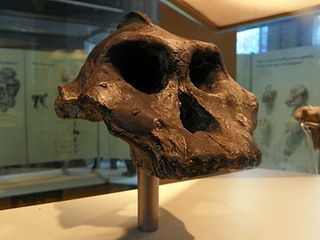Environmentalism Is a Newcomer to Human Civilization
 It’s the birthday of Louis Leakey, a founding figure in modern anthropology. Per the Writer’s Almanac:
It’s the birthday of Louis Leakey, a founding figure in modern anthropology. Per the Writer’s Almanac:
In 1948, Leakey and his wife found one of the earliest fossil ape skulls ever discovered; it was between 25 and 40 million years old. It is now believed to be the skull of the ancestor of all large primates, including humans. Then, in 1959, they turned up another hominid skull, which was 1.75 million years old. It was the oldest skull of a close human relative ever found at that point, and it helped persuade other anthropologists that Africa was indeed the place where human beings had evolved.
Our species, Homo sapiens, is believed to have originated around 100,000 years ago, and the earliest evidence of our living in communities is about 30,000 years old. This, of course, is a blink of an eye in comparison to the age of the planet (4.5 billion years), which serves as a reminder that, where humankind is concerned, a great deal happens very quickly.
Of course, that’s particularly true today, where, over just the past few decades, it’s become clear that our civilization has pushed the extraction and consumption of Earth’s resources and its capacity to clean and regenerate itself to its limits. Before the 1960s, very few people questioned the scope of our planet’s bounty. It’s not so much that we believed our approach to life here was sustainable, but rather that the idea had yet to enter our minds. But commencing at about that time, the work of Rachel Carson, Donella Meadows and the other founders of modern environmentalism spawned a new generation of eco-consciousness, with all the action that came in its wake, e.g., bans on DDT and CFCs.
50 years later we continue to see glimmers of hope here and there. Earlier this week, for example, the Chinese government made the decision to close down the coal-fired power plants in Beijing, with a population of over 21 million, and its entire vicinity, on the basis that the damage to human health and the environment more generally had become unacceptable.
The world is changing quickly. Let’s hope our response to the issues brought about by the change is sufficiently rapid and robust.
